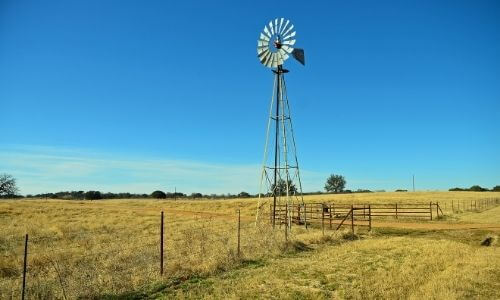Condemnation of property is when the government (or a private entity given authority by the government) seizes land. It happens all over the U.S., but is eminent domain legal in Texas? The law is complex, but yes, eminent domain laws generally grant the government the ability to condemn property for legitimate public uses.
There are many complex questions surrounding eminent domain and whether it is legal, a few of which we answer in more detail below. If your property has been selected for condemnation, contact Dawson & Sodd, PLLC at (903) 872-8181 for diligent representation and fair compensation.
What is “Eminent Domain”?
“Eminent domain” is the term describing the government’s legal authority to seize land. When the land is seized, it is called “condemnation.” The property can be seized for any “public use”:
- Building or expanding highways, bridges, roadways, and railroad lines.
- Running gas, sewer, water and power lines, as well as other utilities.
What is a “Public Use”?
While we normally do not agree these are true “public uses,” it is not uncommon for the government to try to allow condemnation for large commercial projects, like arenas, football stadiums, ballparks, shopping centers and privately owned high-speed railroads. We have fought these battles for decades.
What Happens if Eminent Domain is Used to Take My Property?
If the government, or a private entity with approval from the government, feels your property or part of your property is needed to complete one of these projects, you will be offered what is supposed to be fair, just and adequate compensation for the property. Unfortunately, even though the law requires a fair and good faith offer, those offers are rarely considered to be made in good faith or fair, just or adequate by property owners.
What Influences “Just” or “Adequate” Compensation?
Many times, owners feel the initial offer received is many times lower than what is due under the law.
First, the owner is entitled to the value of the property taken based on its highest and best use, not necessarily its current use. So, vacant land that is suitable for development of some kind in the reasonable future cannot be valued based on running a few cows on it.
Second, if the condemnation only takes part of your property, you are entitled to damages or diminution of value of your remainder property caused by the taking of the portion being condemned.
Frequently Asked Questions about Eminent Domain
You not only have a right to refuse the government’s initial offer, but it is mostly likely the smartest move you can make. While the government is supposed to offer “just and adequate” compensation in an eminent domain case, the truth is that condemning entities often hire agents whose job is to acquire land as quickly and cheaply as possible.
Read more
In Texas, the most common condemnation projects revolve around the construction or expansion of infrastructure, such as:
– Roads and highways
– Electric transmission lines
– Oil and gas pipelines
-Water pipelines
– Lakes
– Parks
– Public buildings
Read more
Technically yes, but it most cases it is a very bad idea. In general, the earlier you get advice from experienced counsel, the better off you will be. Condemnation rules are very complicated, and there are issues a landowner needs to understand before talking to the Condemnor.
Read more
Highlighted Eminent Domain Case Result
If you are not happy or unsure about an offer by a condemning authority, hiring an experienced eminent domain attorney will help you fight to receive proper compensation. There is no shortage of cases where the proposed compensation for land has been contested, and the landowner wins the battle for better compensation.
The eminent domain attorneys at Dawson & Sodd have helped many landowners increase the compensation received for their property, sometimes by millions of dollars. For example, we represented a client in a case in which TxDOT condemned 28 acres for a rest stop along I-35 in Central Texas. The initial offer was $389,323, but the acquisition destroyed all access to the valuable groundwater underneath the land. The case ended in a jury verdict in favor of the landowner. After the State of Texas appealed the decision, but eventually agreed to a settle for the jury verdict amount. The net recovery to our client was $3.14 million.
Get Help from an Eminent Domain Lawyer in Texas
Dawson & Sodd, PLLC focuses only on helping landowners in their condemnation and eminent domain cases. We use hard work, thoroughness, skill, knowledge and determination to represent landowners in these cases to fight condemnation and ensure fair compensation. With over 100 years of experience, we have defended property in every region of Texas. Call Leandra today at (903) 872-8181 to schedule a free consultation.







